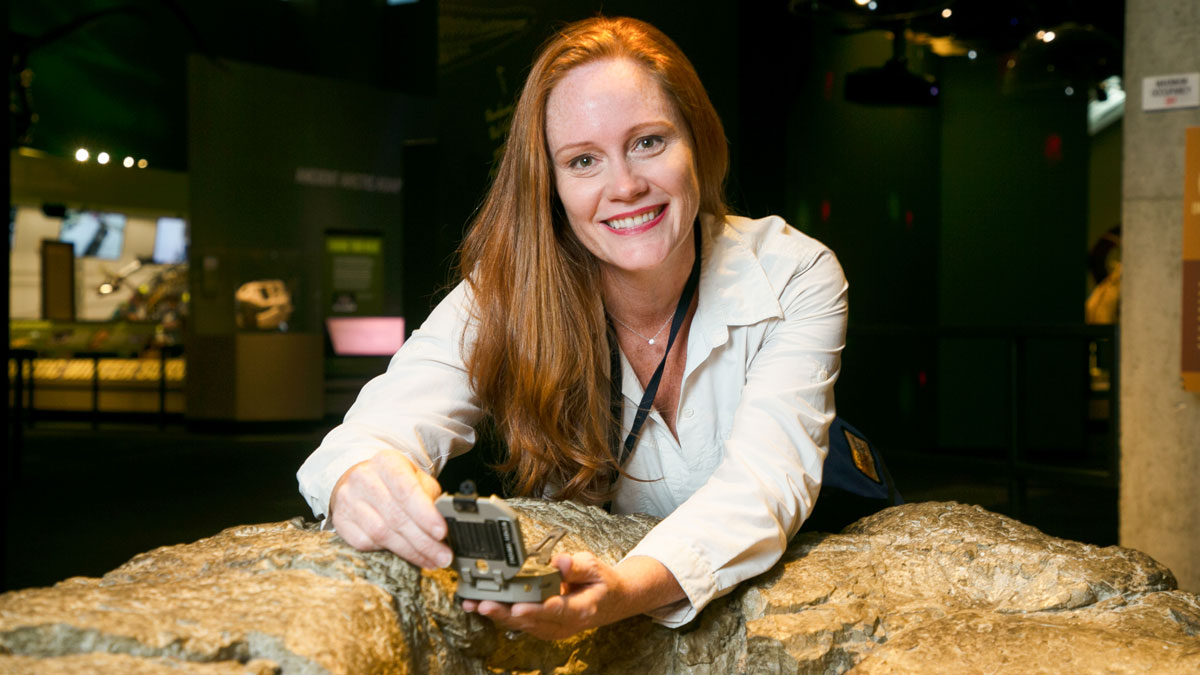Like many young waitresses in Los Angeles, Wendy Bohon once dreamed of an acting career—that is, until the 1999 magnitude 7.1 Hector Mine earthquake shook up her plans (and her fourth-floor apartment).
“My surfboard fell on my head,” Bohon recalled. “I was like, ‘This is amazing.’”
The next day, she showed up at the U.S. Geological Survey office in Pasadena and asked to volunteer. They said no, but she persisted.
Eventually, Bohon helped design a public lecture series about earthquake science, which led to a job at the Pasadena office doing outreach and education.
Two decades later, she’s the branch chief for seismic hazards and earthquake engineering at the California Geological Survey, where she manages scientists who help keep people safe from earthquake hazards.
Tens of thousands of people know of Bohon for something else: science communication. Through social media, talks, and more, she shares the joy of understanding our planet with audiences that otherwise might never have taken a second look at a rock.
During grad school, Bohon experimented with how best to share science online. After earning her Ph.D. in geology in 2014, she managed communications for organizations such as Incorporated Research Institutions for Seismology (IRIS; now part of EarthScope) and NASA Goddard and even started her own science communication company. Outreach isn’t part of her current job, but she continues doing it in her free time.
“I care a lot about people, and I have anxiety,” Bohon said. “I know that earthquakes induce a lot of anxiety in people.”
Quelling anxiety isn’t her only goal. She also wants to inspire. Among other pursuits, she’s an ambassador for IF/THEN, an initiative that highlights women role models in science, technology, engineering, and mathematics (STEM) fields.
Bohon wants aspiring scientists to know that there’s a “whole ecosystem of science careers.” She especially dislikes the “leaky pipeline” metaphor that people use to describe the tendency of women to leave academia at higher rates than men, especially after becoming parents.
“You’re not lost. You’re just taking a different path, and your science knowledge goes with you wherever you go.”
Bohon was 7 months pregnant when she defended her Ph.D. And after taking a hard look at what an academic career would mean for her family, she decided it wasn’t for her. So she took her expertise and infectious enthusiasm elsewhere.
“They’re implying that if you don’t follow this very narrow path, that you’re leaking out, that you’re lost,” Bohon said. “You’re not lost. You’re just taking a different path, and your science knowledge goes with you wherever you go.”
—Elise Cutts (@elisecutts), Science Writer
This profile is part of a special series in our August 2025 issue on science careers.


